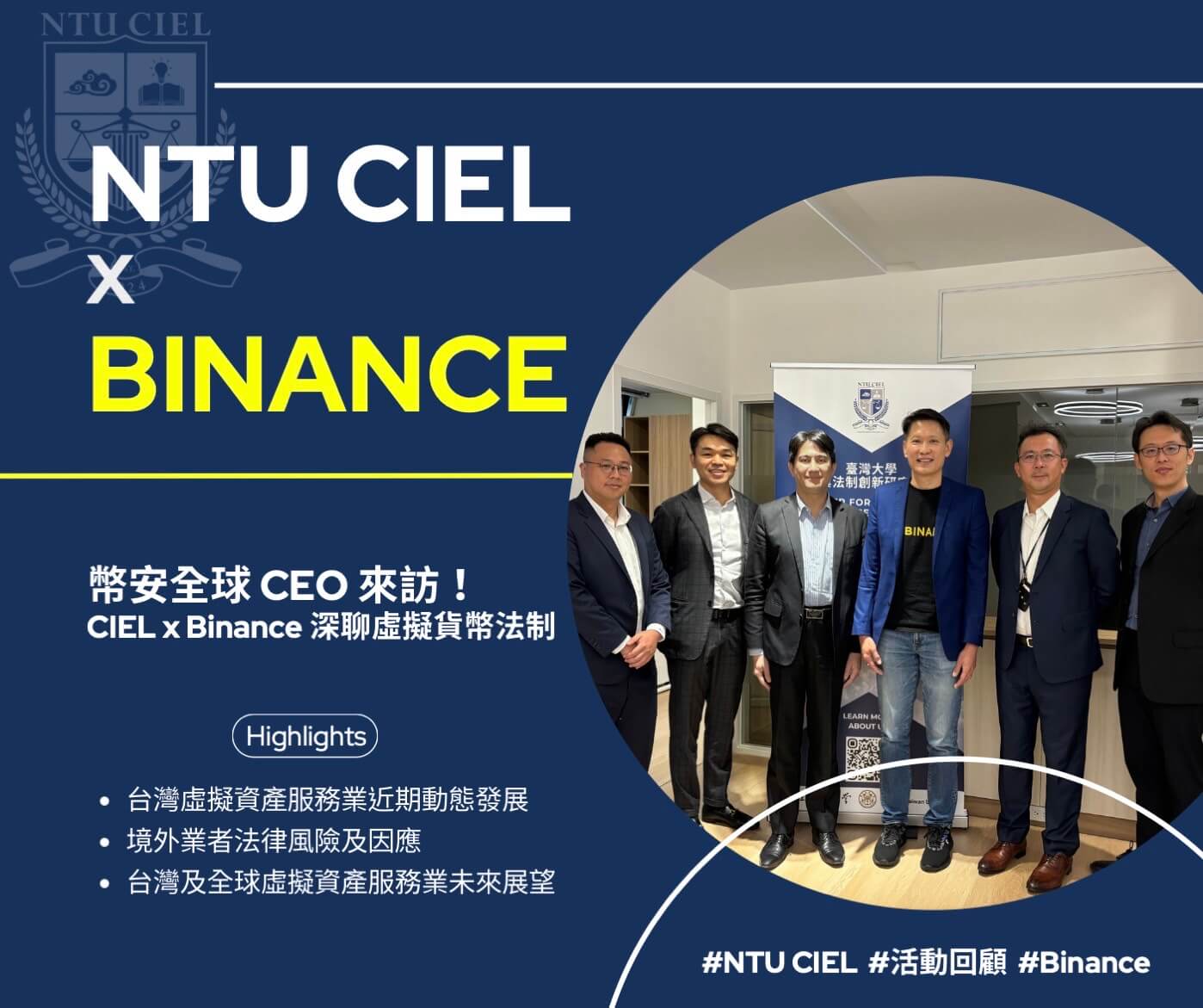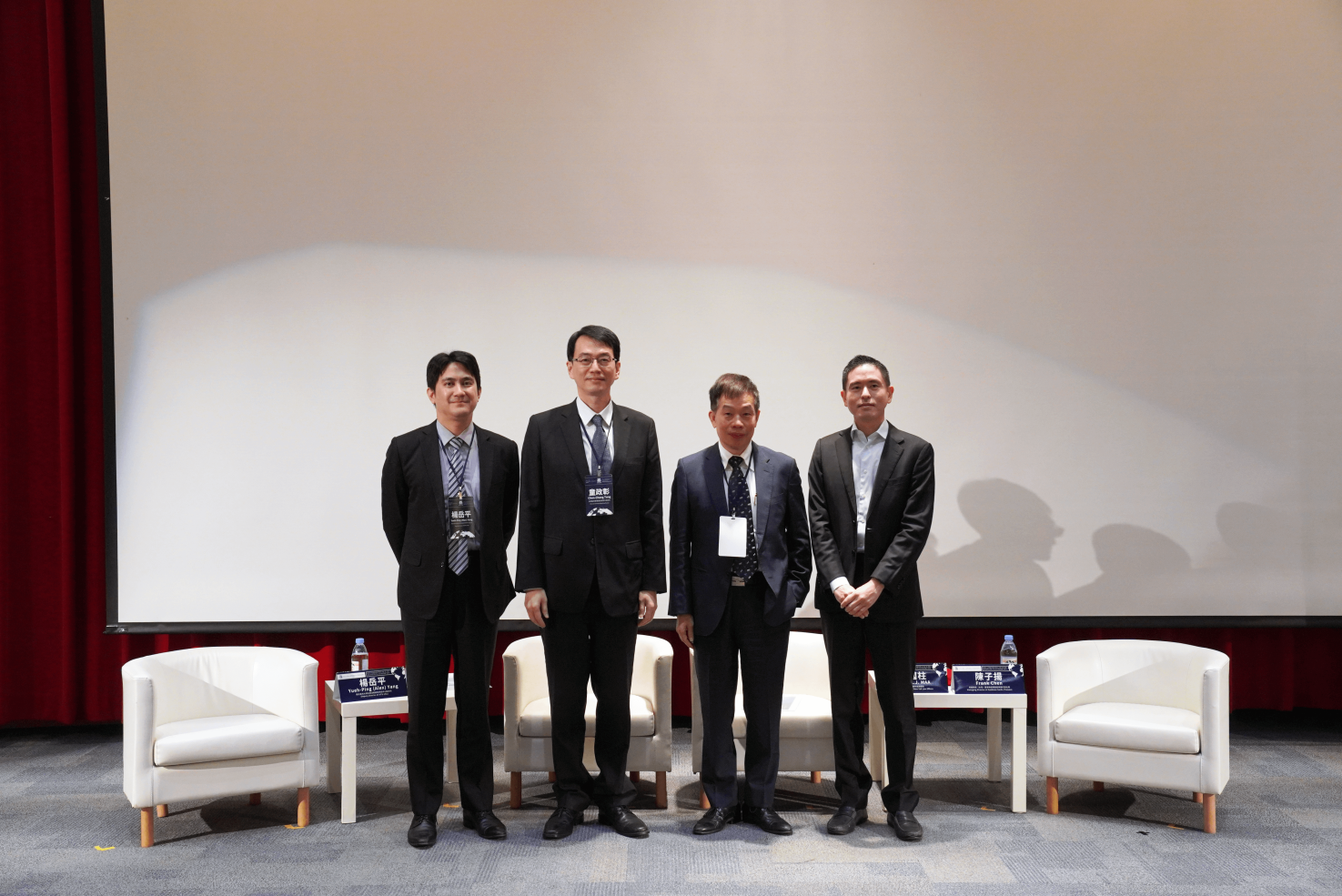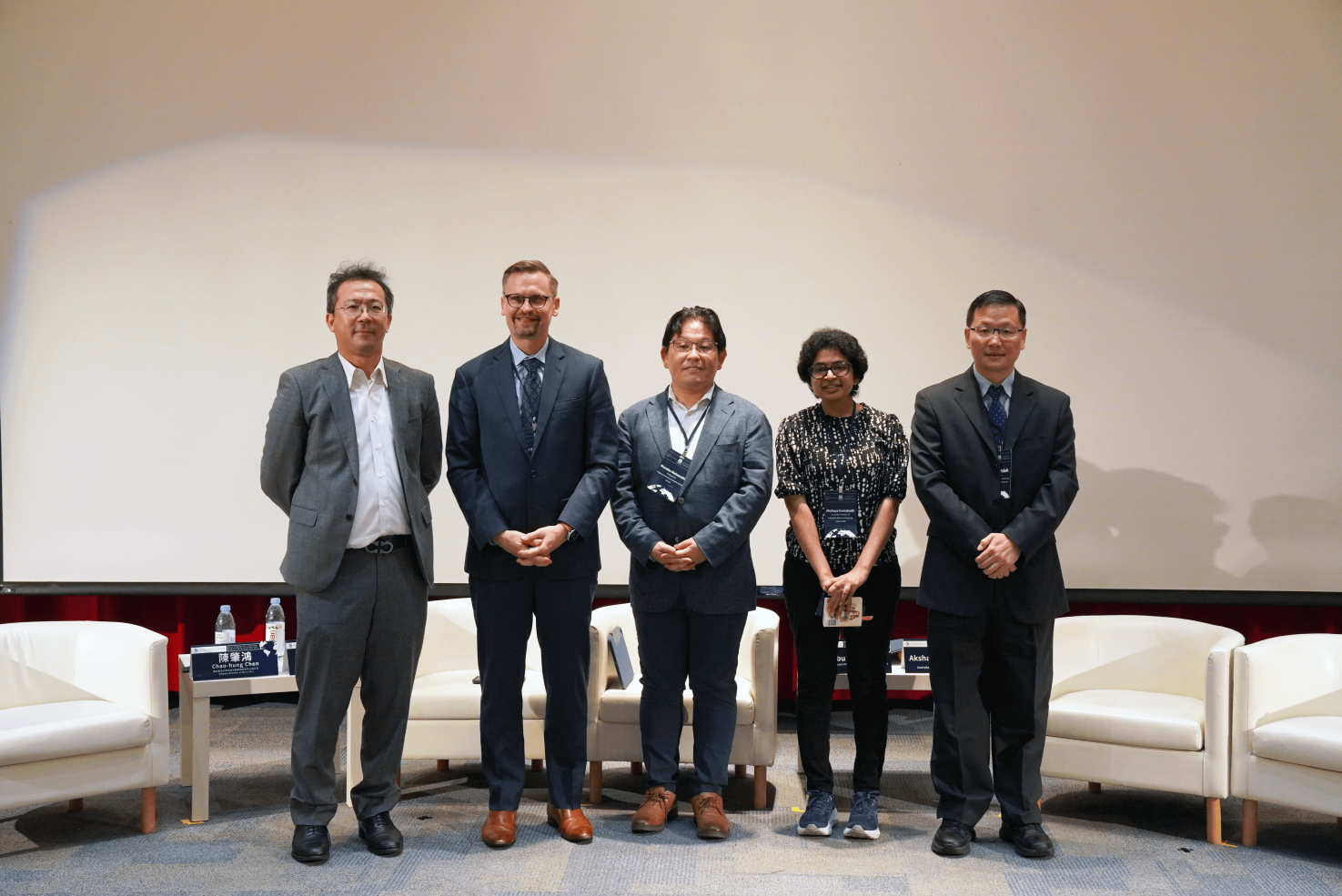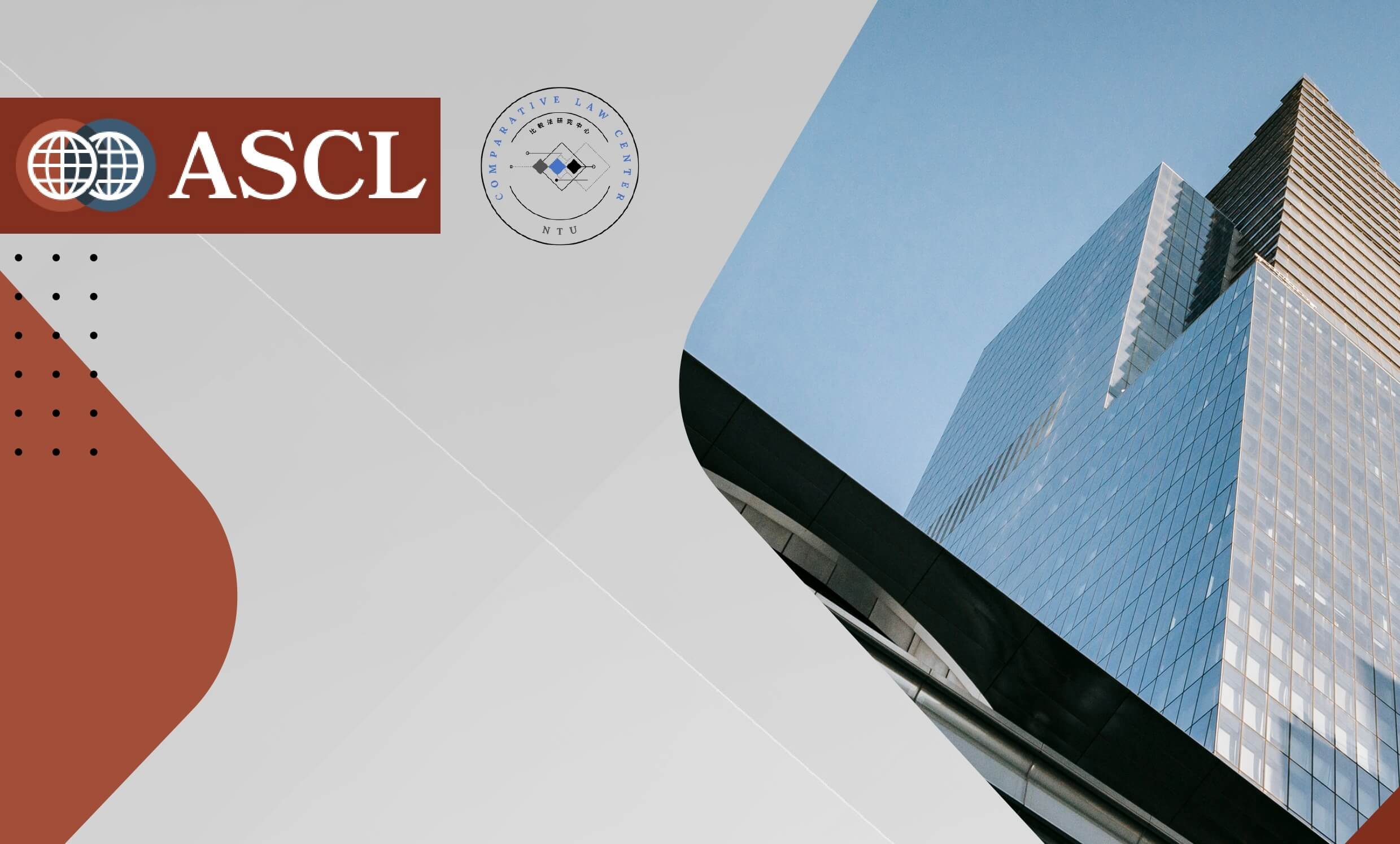文章大綱
NTU CIEL Inauguration Ceremony|Corporate Law in the Era of Geopolitical Economy May 12, 2025 – NTU College of Law, Tsai Lecture Hall, International Conference Hall On May 12, 2025, the “Center for Innovation in Enterprise Law” (CIEL) was officially inaugurated at the International Conference Hall of the Tsai Lecture Hall, College of Law, National […]
NTU CIEL Inauguration Ceremony|Corporate Law in the Era of Geopolitical Economy
May 12, 2025 – NTU College of Law, Tsai Lecture Hall, International Conference Hall
On May 12, 2025, the “Center for Innovation in Enterprise Law” (CIEL) was officially inaugurated at the International Conference Hall of the Tsai Lecture Hall, College of Law, National Taiwan University (NTU). The ceremony marked the unveiling of NTU’s first university-level legal research center and featured a thought-provoking roundtable forum on corporate legal innovation in an era shaped by geopolitical and economic shifts. Let us look back on the highlights of this landmark event.
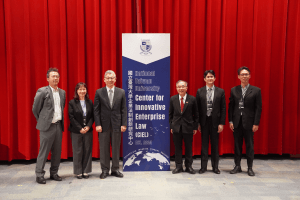
The ceremony opened with remarks by Professor Wang-Ruu Tseng, Director of CIEL and Vice President of NTU. She expressed deep gratitude to Mr. Hong-Tu Tsai, Chairman of Cathay Financial Holdings, and President Wen-Chang Chen of NTU, for jointly witnessing this important milestone in the university’s history. Vice President Tseng particularly thanked Chairman Tsai for his longstanding support of legal education and research at NTU. She voiced her hopes that the College of Law will continue to meet the high expectations placed upon it by both the Chairman and President, and will generate outstanding academic achievements.
Vice President Tseng also expressed her vision for the Center to address key legal challenges faced by businesses and industries through interdisciplinary and international research. She hoped that, by organizing academic conferences, industry roundtables, and similar initiatives, the Center would contribute concrete legislative and regulatory proposals that could exert a meaningful social impact and bring Taiwan’s corporate legal environment closer to international standards.
She further noted the recent establishment of a regulatory sandbox by the government for startups, which highlights the urgency of innovation in legal and industrial development. In this context, CIEL can serve as a crucial academic partner—collaborating with government and industry to shape a more adaptable and forward-looking corporate legal framework.
Addressing the rapidly changing global geopolitical and financial landscape, Vice President Tseng emphasized the need for both businesses and legal systems to respond swiftly. She noted that the theme of the forum—corporate law amid geopolitical shifts—was highly relevant to this dynamic environment, and she looked forward to the diverse insights and creative perspectives that the invited speakers would bring.
In closing, Vice President Tseng once again thanked Chairman Tsai, President Chen, and all distinguished guests for their presence, expressing her hope that attendees would gain valuable insights from the day’s discussions.

Following Vice President Tseng’s remarks, Chairman Hong-Tu Tsai of Cathay Financial Holdings delivered a speech. He expressed his great pleasure in attending the inauguration and, as an NTU Law alumnus, fondly recalled his four years at the university, which he described as a time of great academic freedom. After graduating, he pursued legal studies in the United States, became licensed to practice law in Washington, and later returned to Taiwan to enter the business world. While he did not practice as a lawyer, he emphasized his deep appreciation for the crucial role of law in both society and enterprise.
Chairman Tsai pointed out that every aspect of business operations is subject to legal regulation, but the law often lags behind the pace of enterprise development. Despite many calls for legal reform, gaps remain. He therefore highlighted the importance of establishing a permanent platform for dialogue—one where academia, government, and industry can jointly explore and address emerging challenges.
He expressed his hope that the Center would serve as a collaborative hub for business development and legal scholarship, acting as a private-sector think tank to tackle pressing legal issues. He offered examples such as cybersecurity risks brought about by IT advancements, and the transformative impact of AI on finance and technology—issues that may be difficult to address from a traditional legal perspective but could inspire innovative thinking when approached from fresh angles.
Chairman Tsai concluded by expressing his wish that future events organized by the Center would go beyond legal and regulatory participants to also include voices from investment institutions, IT, and AI industries. Through collective input, he envisioned a broader exploration of future solutions for corporate development and legal frameworks.
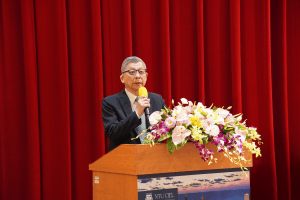
At the conclusion of the inauguration ceremony, NTU President Wen-Chang Chen delivered closing remarks, expressing his sincere gratitude to all the distinguished guests for attending and witnessing this major milestone in NTU’s journey in legal research—the launch of the Center for Innovation in Enterprise Law (CIEL).
President Chen highlighted the rapid advancements in emerging technologies and the shifting geopolitical and economic landscape, noting that businesses today require new legal frameworks to navigate such transformations. He acknowledged that, in addition to supporting the establishment of a research center at his alma mater, Singapore Management University (SMU), Chairman Tsai also recognized the importance of establishing a similar institution at NTU. Thus, the founding of CIEL was both timely and essential.
He further emphasized that CIEL is poised to become one of NTU’s most significant research centers—not only in terms of its contributions to legal scholarship and the broader legal system, but also as a foundation for international collaboration. He expressed hope that the center would offer constructive policy recommendations and grow into a globally leading institution in corporate legal studies.
President Chen concluded by once again thanking Chairman Tsai for his generous donation that enabled the creation of both CIEL and the College of Social Sciences building. Notably, the roundtable forum took place in the Tsai Lecture Hall (Lin Ze Building), named in honor of Chairman Tsai’s father—a fact that lent profound symbolic meaning to the inauguration. This, President Chen noted, reflects Chairman Tsai’s deep commitment to advancing legal education and scholarship. He also extended heartfelt thanks to all CIEL team members for their hard work, expressing his aspiration that the center will serve not only as a globally recognized hub for corporate legal research, but also as a policy think tank contributing meaningfully to national development.

Following the inspiring remarks delivered by the three distinguished guests, Vice President Tseng, Chairman Tsai, President Chen, and the three Deputy Directors of the Center jointly officiated the unveiling ceremony. As the red cloth was gracefully lowered, the inauguration was officially completed, symbolizing the formal launch of the NTU Center for Innovation in Enterprise Law (CIEL).
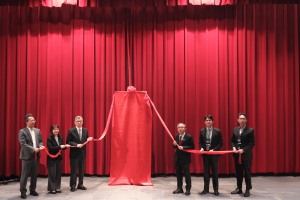
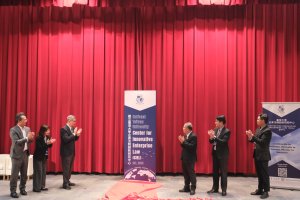
We extend our sincere gratitude to Chairman Hong-tu Tsai and President Wen-Chang Chen for their generous support and encouragement, as well as to all distinguished guests who contributed to this meaningful event. Moving forward, the NTU Center for Innovation in Enterprise Law (CIEL) will continue to promote research and innovation in the field of enterprise law.
Following the unveiling ceremony, the Center also hosted two engaging roundtable forums that explored the challenges and opportunities of enterprise law in an era shaped by geopolitics. A detailed recap of these thought-provoking discussions is available on our official website—we warmly invite you to revisit the event highlights online!
Back

